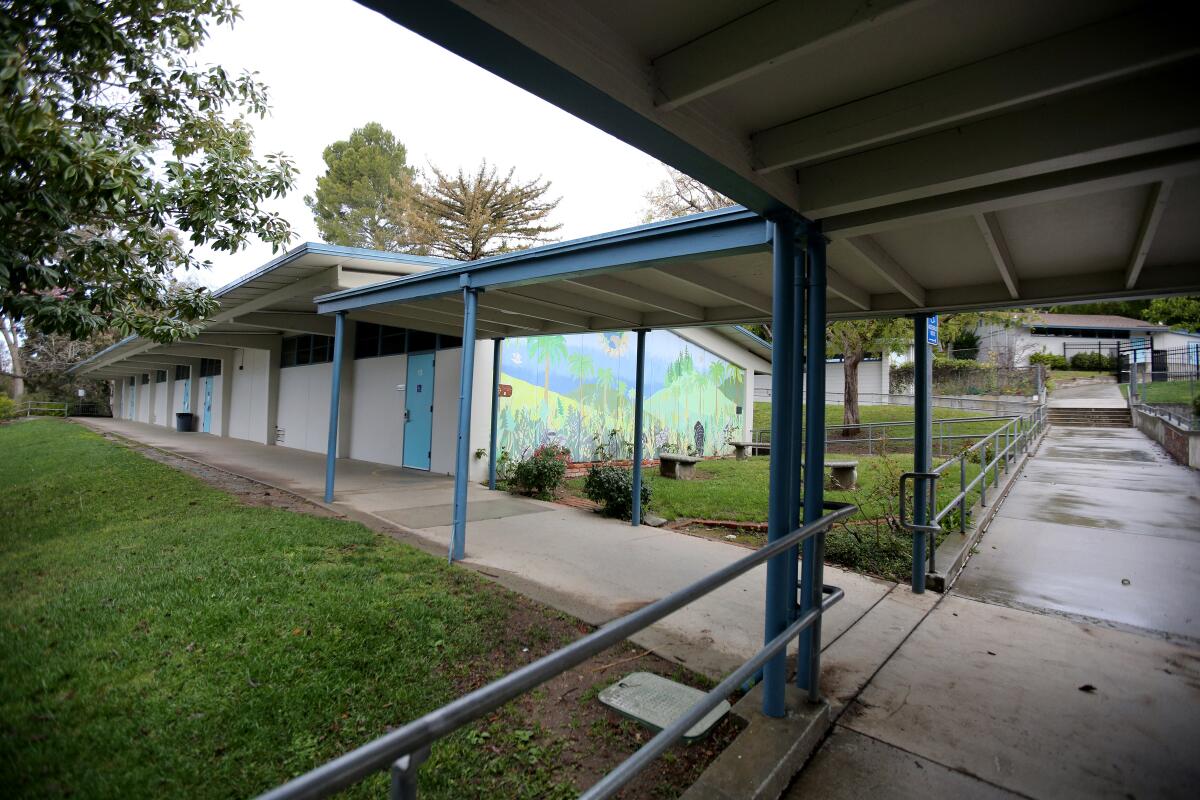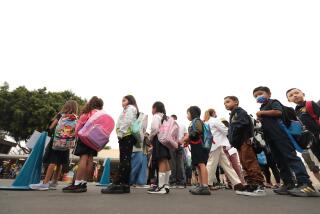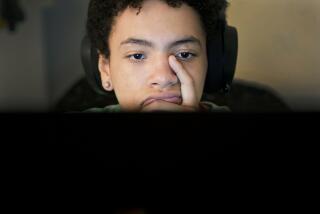Opinion: I’m not a teacher. My home ‘school’ is a joke. California needs a better coronavirus education plan

- Share via
When we heard that the Los Angeles Unified School District would close schools for two weeks to help slow the spread of the novel coronavirus, my two sons — one in third grade, the other in fifth — were thrilled because no school usually means they get to sleep late, watch too much television and enjoy their vacation.
I knew the closure would a challenge because I’m still working and, no, the boys weren’t being given the time off. They were switching from elementary school to home school.
The district had some crazy expectation that parents would easily slip into the role of instructor — on top of the usual employee, caregiver and housekeeper roles that working parents juggle. And I was totally into it, too. I got the emails and the websites from the PTA and other parents suggesting home school schedules. I planned out the days’ subjects hour by hour.
My third-grader came home with a packet of worksheets. My fifth-grader brought home his math and reading comprehension workbooks. For the both of them, that’s about 30 minutes of school work each day. For everything else, we’re on our own. This is not a criticism of their teachers, who had to scramble over a couple of days to develop two weeks of remote-learning lessons. That’s no easy job.
And I must say, Day 1 of home school started off well. The boys were ready and excited at 8 a.m. to launch themselves into their self-directed learning. They even held their own Monday morning assembly in the living room. But the novelty was long gone by 2 p.m., and that was after an hour of P.E. and an hour-long lunch.
Day 2 began at 9 a.m. with reading and math, but quickly veered off track with a lengthy Nerf bow-and-arrow battle.
On Day 3, my younger son drew all over his legs with a pen. That qualifies as art class, right?
This will be fine for a week or two. The closures were the right decision in the face of a pandemic that could become far more deadly without serious measures to slow infections. We can manage, and the kids won’t suffer from a short break in their education. But if schools are closed for the rest of the academic year, as Gov. Gavin Newsom suggested this week, well, that’s a different story.
There are, no doubt, some parents who will take the baton from their kids’ teachers and not miss a beat. After all, almost 200,000 children in this state, or about 3% of the school-aged population, were home-schooled in 2017-2018, one home-schooling site estimates. But let’s not pretend that most kids stuck at home during the shutdown are getting “home-schooled” or getting any kind of serious education — beyond the school of life, that is.
I can’t come close to providing the quality instruction that my kids get from their professionally trained and experienced teachers. Certainly not when my husband and I are both trying to work from home, balancing video teleconference meetings, phone calls and writing. (How’s it going? It took me eight hours to write this column.)
I desperately hope that Newsom, State Supt. of Public Instruction Tony Thurmond, LAUSD Supt. Austin Beutner and school leaders across the state are developing plans to ensure kids don’t lose months of education during the coronavirus emergency.
There have got to be models and curriculum that could rolled out relatively quickly. Online courses? Teaching by teleconference? Schools could open computer labs and libraries by appointment to minimize crowds and maximize social distancing. The challenge is providing students with high-quality learning opportunities, not busy work, and making sure that all students can participate, not just those with tablets and computers at their fingertips. Considering that about 80% of L.A. Unified students are poor enough to qualify for subsidized school lunches, that’s no small order.
Again, none of this is easy, but it is essential. Parents can do a lot to support their kids’ education. But we need help from the professional educators and experts, and so far, we haven’t gotten it.
More to Read
A cure for the common opinion
Get thought-provoking perspectives with our weekly newsletter.
You may occasionally receive promotional content from the Los Angeles Times.











